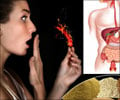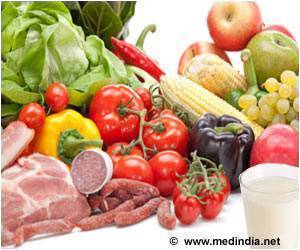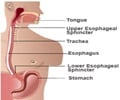Overview
While growing up - we have often heard the refrains - chew your food, chew well and swallow. Many people even insist on counting the number of chews but that sort of takes away all the fun of eating.
Making a conscious effort to chew food at an unhurried pace will contribute to good digestion. As someone once said, “Our stomach does not come with teeth.”
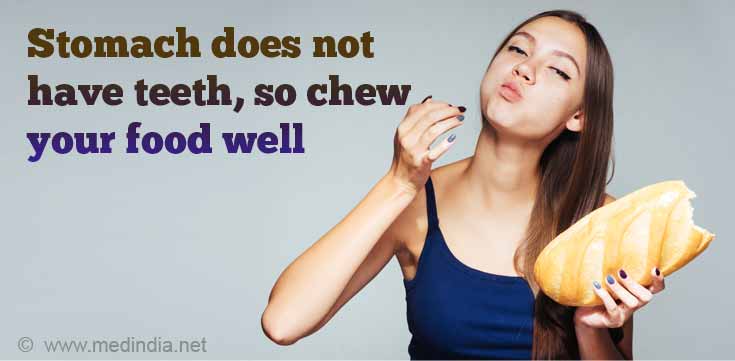
The word ‘digestion’ conjures to the mind ‘the stomach’ - when actually the digestion begins in the mouth - as soon as the chewing action begins. The mouth secretes saliva and while chewing, this saliva coats the food with enzymes called amylase and lipase. These enzymes start the process of digesting the fats and starches in the mouth.
The action of chewing prepares the body for digestion and the stomach is now on alert to make acid. The pancreas also receive signals to secrete juices into the small intestine.
Chewing is a methodical and well-paced action, which constitutes the ‘cephalic stage’ of digestion. The cephalic phase responses have been analyzed by researchers, who found that small molecules are released which are critical to digestion. Cholecystokinin and neurotensin increase by 50 percent at the smell and sight of food and when the food is first chewed well in the mouth.
The stimulation of the taste receptors in the mouth prompts the nervous system which in turn relays the information to the gastrointestinal system. This relay system signals the stomach lining to produce and release hydrochloric acid which aids in breaking down protein in the food.
When you swallow large bites - without chewing, only the outer surface is accessible to the stomach enzymes and acid to work on. This undigested food stays for a longer time in the stomach, giving a feeling of bloating and gas. In addition, there is not enough saliva for quick and smooth movement of food.
These are all causes for reflux and heartburn, acidity and stomach cramps.
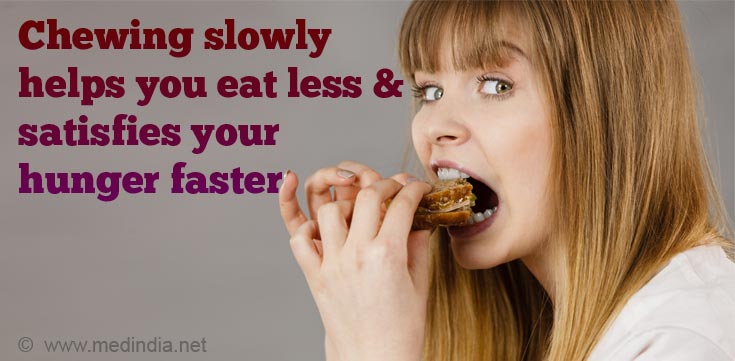
You tend to eat less food when you chew well as the brain receives the signals and feeling of satiety. It is the best way to lose weight and eat healthy at the same time.
We spend money to buy the best quality food, invest time to cook it - so we should respect that and spend an equal amount of time in enjoying our meal and benefiting nutritionally too.

